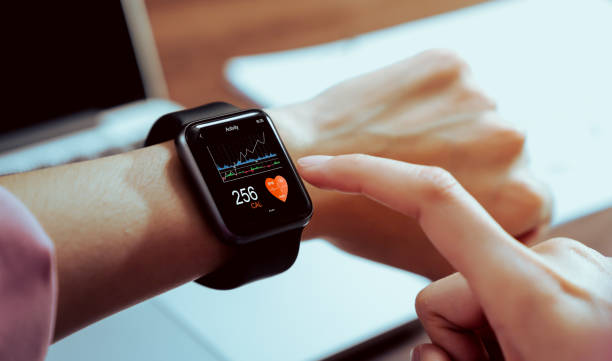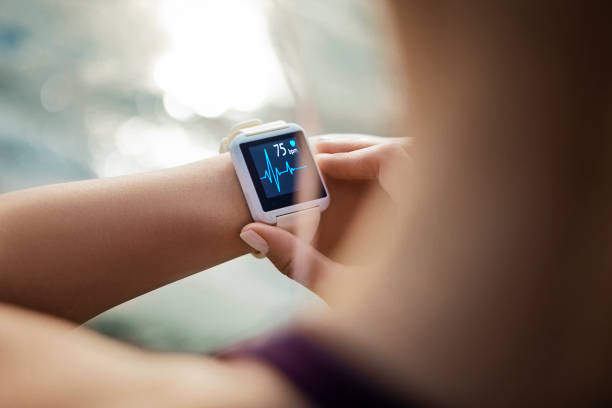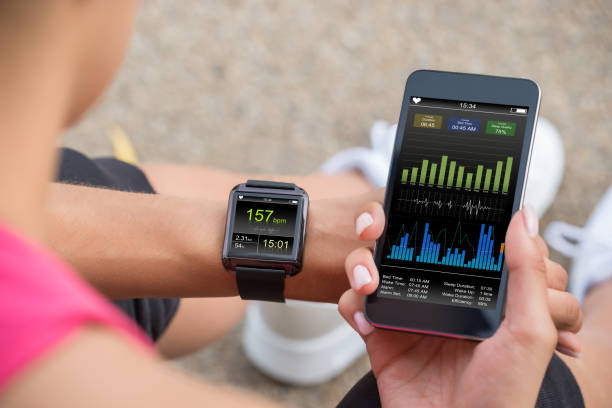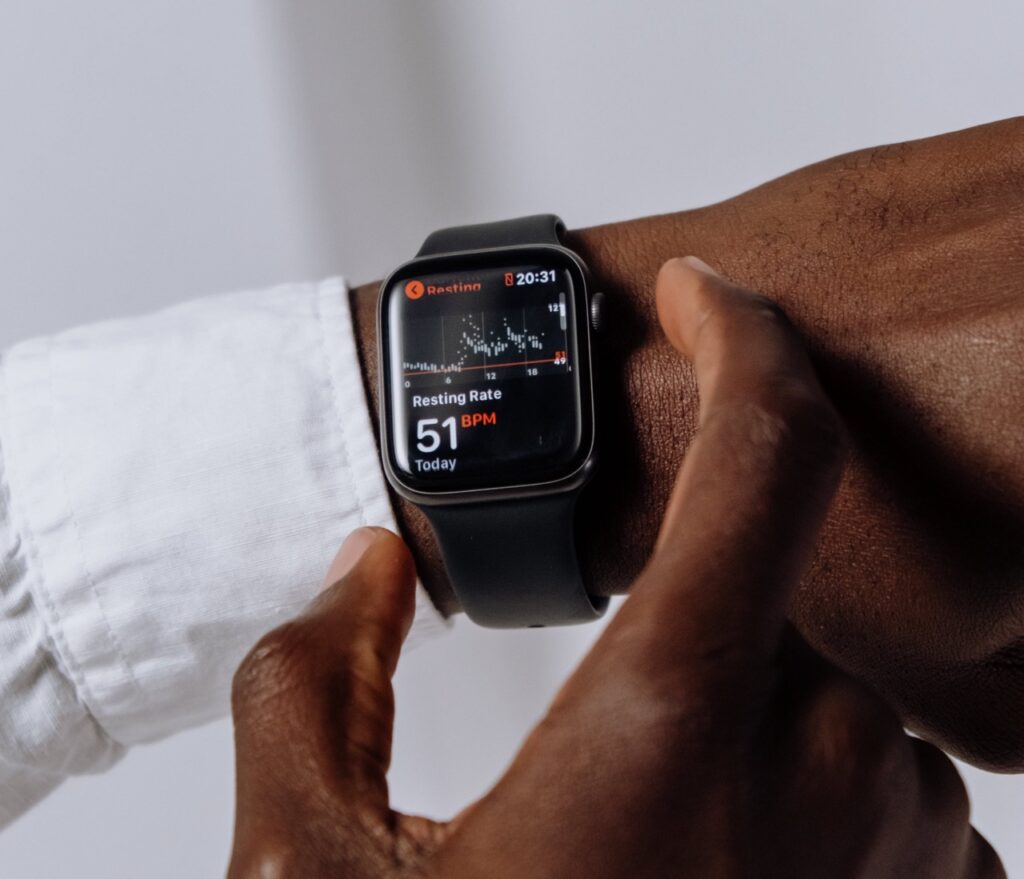Fitness Gadgets
Why Are Health Apps Important
Health apps have gained popularity in recent years, and for good cause. These apps make it easy to track health data, assess progress, and find resources for living a healthy lifestyle. With the rise of digital health, mobile health, and other technology advances, health apps have become a vital tool for people who want to take charge of their health and well-being.
One of the primary reasons health apps are significant is that they enable people to conveniently track and monitor their health parameters. Health applications provide an easy and effective way to track essential health data, such as steps taken, calorie consumption, and heart rate. Individuals who have access to this information can make more educated decisions about their health and make the necessary changes to improve their overall well-being.
In addition to tracking health measurements, health apps provide a plethora of information for living a healthy lifestyle. From fitness routines to healthy recipes, these apps offer useful information and direction to people trying to make positive changes in their life. Individuals can use these tools to learn about healthy behaviors and make informed decisions about their nutrition and exercise.

Enhancing Patient Engagement and Self-Management
We believe that health apps can significantly improve patient involvement and self-management. These apps empower patients to actively manage their health and well-being by providing them with individualized health information and support.
Improving Medication Adherence
One of the primary advantages of health apps is that they can assist people improve their drug adherence. These apps, which provide reminders and notifications, can help patients remember to take their prescription on time. This is especially crucial for people with chronic diseases who must take several drugs on a regular basis.
In addition to medication reminders, health apps can give users information about their prescriptions, such as dosage directions and potential side effects. This can help individuals comprehend their medications and make more educated health decisions.
Facilitating Behavioral Change
Another significant advantage of health apps is that they can aid in behavioral modification. These apps can assist patients in making positive life changes by providing them with tools and resources to encourage healthy behaviors.
For example, health apps can give patients with exercise regimens and tracking tools to help them stay on track with their fitness objectives. They can also educate patients on healthy eating and weight loss tactics, as well as tools for tracking their food consumption and progress.
Health applications can also help individuals who are trying to quit smoking. These apps can improve patients’ chances of quitting by providing them with information and resources.
Overall, we feel that health applications can improve patient engagement and self-management. These apps can assist patients in actively managing their health and well-being by providing individualized support and resources.

Supporting Healthcare Providers
As healthcare practitioners, we are always seeking for new ways to improve patient care and expedite communication. Health applications have become a valuable tool for accomplishing these objectives. Here are two ways that health applications can help healthcare providers:
Streamlining Communication
Health applications allow healthcare providers to communicate more effectively with one another and their patients. Telehealth apps, for example, enable patients to consult with their healthcare providers remotely, hence decreasing the need for in-person appointments. This is especially crucial for patients who reside in remote places or have limited mobility. Telehealth can also save time and money for patients and healthcare professionals.
Furthermore, health apps can be utilized to track patients remotely. This means that healthcare providers can monitor their patients’ health without making regular in-person visits. For example, a diabetic patient can use a smartphone app to monitor their blood sugar levels and share the results with their doctor. This allows healthcare personnel to modify the patient’s treatment plan as needed, hence increasing the efficacy of patient care.
Enabling Remote Monitoring
Health apps can also be used to track patients remotely. This means that healthcare providers can monitor their patients’ health without making regular in-person visits. For example, a diabetic patient can use a smartphone app to monitor their blood sugar levels and share the results with their doctor. This allows healthcare personnel to modify the patient’s treatment plan as needed, hence increasing the efficacy of patient care.
Overall, health apps are valuable resources for healthcare providers. They allow us to expedite communication, monitor patients remotely, and improve the effectiveness of patient care. As technology advances, health apps will become increasingly important to the healthcare business.

Advancing Health Outcomes Through Data and Analytics
As health apps become more popular, they are increasingly acknowledged as effective tools for improving health outcomes. One of the primary advantages of health applications is the capacity to collect and analyze personal health information. This information can then be used to improve patient treatment, disease prediction and prevention, and overall health outcomes.
Personalizing Patient Care
Personal health information gathered through health apps can be used to create personalised treatment regimens for individuals. By examining data such as blood pressure and blood glucose levels, clinicians can acquire a better knowledge of a patient’s health and change treatment strategies accordingly. This can result in more effective therapy and healthier outcomes.
Personal health data can be utilized not just to improve treatment plans, but also to remotely monitor patients. This is especially useful for people with chronic diseases who require continuous monitoring. Doctors can use health apps to collect and analyze personal health data, allowing them to monitor patients remotely and act as needed, resulting in better health results.
Enhancing Disease Prediction and Prevention
Health applications can also help to improve disease prediction and prevention. Doctors can identify patients who are at risk for specific diseases and take preventative actions to lower their chances of developing them by evaluating personal health data.
For example, by evaluating data like as blood pressure and cholesterol levels, doctors can identify patients who are at risk for heart disease and devise preventative interventions such as lifestyle changes or medication to lower the risk of acquiring the disease.
In addition to detecting disease-prone patients, health applications can track the spread of communicable diseases. Health apps can assist identify outbreaks and track illness spread in real time by gathering data on symptoms and other factors, allowing for more timely intervention and prevention.
Overall, the integration of data and analytics in health apps has the potential to change healthcare by increasing patient care, disease prediction, and prevention.

Navigating Regulatory and Quality Considerations
Health apps have become an indispensable component of healthcare delivery and administration. However, like with any medical device or intervention, regulatory and quality issues are critical to ensuring its safety and efficacy. This section will go over the importance of managing regulatory and quality considerations when designing and using health apps.
Ensuring Safety and Effectiveness
One of the most pressing challenges when designing health apps is assuring their safety and effectiveness. Health apps must be rigorously tested to assure the highest levels of safety and effectiveness. This testing should involve evidence-based research and clinical studies to show that the app is safe and effective.
To ensure safety and efficacy, health applications must adhere to medical device laws. The FDA regulates medical devices, including health applications. The FDA has issued guidelines for mobile medical apps, outlining the regulatory criteria for health applications. These rules assist guarantee that health apps meet the highest levels of safety and efficacy.
Complying with Health App Regulations
Compliance with health app rules is critical for ensuring the safety and effectiveness of health applications. Health app developers must follow the FDA’s requirements for mobile medical apps. These standards urge developers to show that their apps are safe and effective through evidence-based research and clinical studies.
In addition to FDA restrictions, health app developers must follow data protection and privacy rules. Health apps frequently collect sensitive personal health information, which must be safeguarded to maintain patient privacy and confidentiality. To protect patient data, developers must follow HIPAA laws.
To summarize, overcoming regulatory and quality considerations is critical to ensuring the safety and effectiveness of health apps. Compliance with FDA standards, as well as data protection and privacy regulations, is crucial for ensuring patient safety and confidentiality. By assuring the safety and effectiveness of health applications, we can improve healthcare delivery and management, resulting in better patient outcomes.
Conclusion
The personalized nature of health apps has been a game-changer. Tailored recommendations, goal-setting features, and real-time feedback create a sense of accountability, motivating me to make healthier choices. The ability to set specific health objectives and witness progress in real-time has turned health management into a dynamic and engaging experience.
Furthermore, the integration of health apps with wearables has elevated the monitoring of vital health metrics. Continuous tracking of heart rate, sleep patterns, and physical activity allows me to stay proactive about my health, catching potential issues early and making informed decisions to optimize my overall wellness.
In conclusion, the integration of health apps into my daily life has been a pivotal step towards a more proactive and informed approach to well-being. These digital companions have not only simplified health management but have also inspired me to take an active role in nurturing my physical and mental health.
Journey of self discovery


